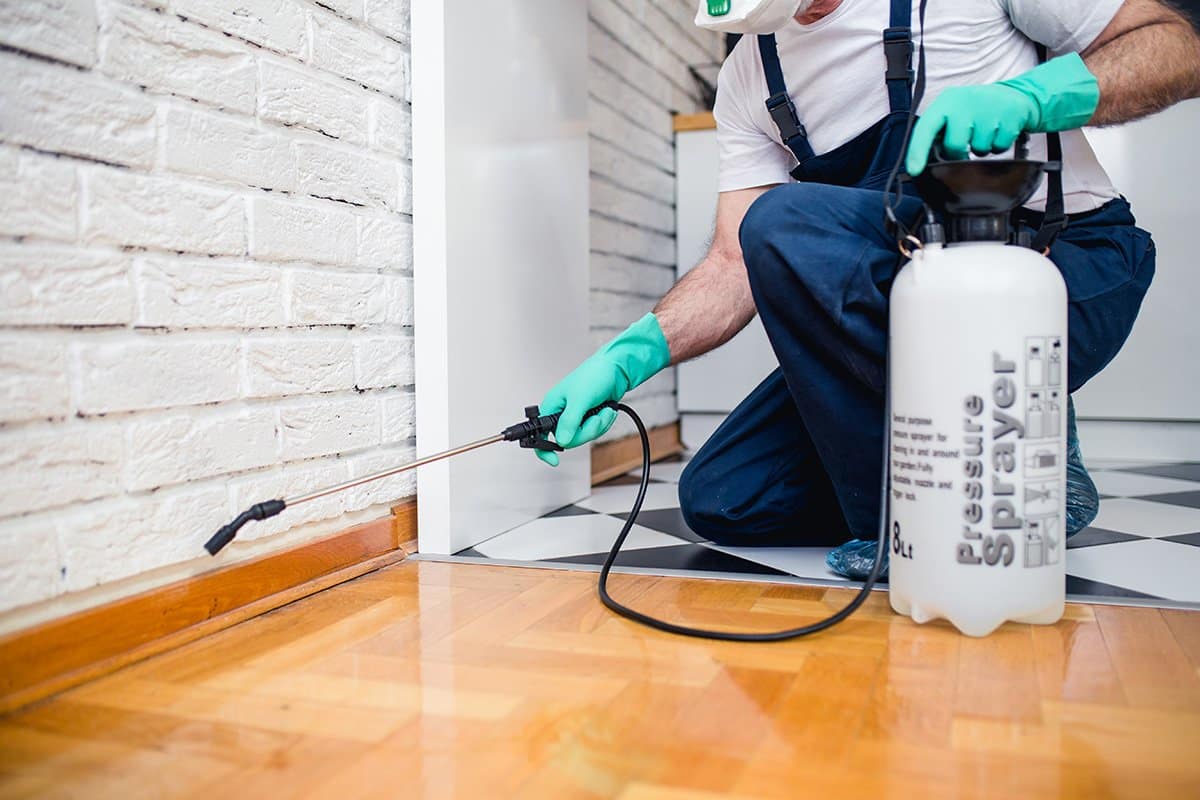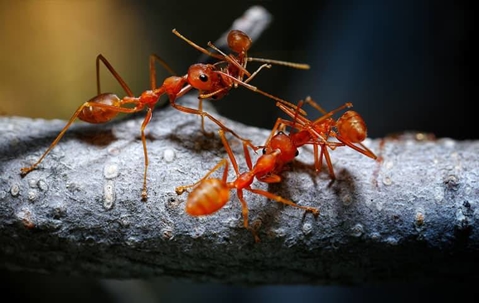Full Ant Control: Methods and Services to Defeat Ant Troubles
Environmental Effect of Bug Control: Harmonizing Efficiency With Sustainability
The environmental effect of bug control is an important concern that needs a fragile equilibrium between achieving performance in guaranteeing and taking care of bugs sustainability of our ecological communities. From the usage of hazardous chemicals that seep into our dirt and water to the unintended effects on non-target species, the consequences of traditional parasite control practices are far-ranging.
Dangerous Chemicals in Insect Control
The usage of harmful chemicals in bug control positions substantial ecological and health risks that necessitate careful factor to consider and mitigation strategies. Herbicides, insecticides, and chemicals are frequently utilized to get rid of insects, yet their extensive application can lead to unintended consequences. These chemicals can contaminate soil, water resources, and the air, influencing not just the targeted parasites but additionally helpful pests, wildlife, and humans.

To address these risks, incorporated pest administration (IPM) strategies are being promoted as an extra lasting choice. IPM entails a mix of approaches such as organic control, environment control, and the targeted use of pesticides as a last resort (ant control stokesdale nc). By adopting a holistic approach to pest control, we can lessen the ecological and health impacts connected with unsafe chemicals while effectively handling pest populaces
Impact on Non-Target Species
Considering the unintended repercussions of insect control approaches, the influence on non-target varieties is a critical facet that needs comprehensive assessment. While insect control steps intend to target details parasites, various other organisms in the ecological community may be accidentally influenced. Non-target varieties, including beneficial pests, birds, animals, and also plants, can experience straight or indirect harm from pesticide applications or biological control approaches.
Insecticides made to battle a particular insect bug might harm pollinators like bees or all-natural killers such as ladybugs. Organic control agents, if not species-specific, can pose threats to unintended targets, interfering with the ecological equilibrium.
To minimize the effect on non-target species, incorporated parasite administration (IPM) approaches that emphasize a holistic technique to pest control are recommended. These techniques prioritize making use of eco-friendly methods, reducing injury to helpful organisms while successfully handling pest populations. Carrying out comprehensive risk evaluations and monitoring the outcomes of parasite control initiatives are crucial action in guarding non-target types and promoting general community health.
Soil and Water Contamination
Unplanned ecological effects of bug control approaches extend beyond impacting non-target species, with substantial effects for dirt and water contamination. Pesticides, herbicides, and chemical plant foods used in parasite control can seep right into the soil and contaminate groundwater, posing a threat to both aquatic and terrestrial communities. Dirt contamination can interfere with the balance of bacteria vital for vitamins and mineral cycling and plant development, resulting in reduced dirt fertility and efficiency. These chemicals can continue in the environment for extensive durations, accumulating in the soil and possibly entering the food chain.
Water contamination is another essential concern connected with insect control techniques. Overflow from agricultural fields treated with chemicals can carry these chemicals right into nearby water bodies, influencing aquatic microorganisms and water top quality. Pollutants in water sources can have far-ranging consequences, affecting not just marine life yet also human health and wellness via the intake of infected water or water organisms. To mitigate dirt and water contamination from parasite control activities, integrated parasite management techniques that prioritize sustainability and reduce chemical inputs are vital.
Air Contamination From Chemical Usage
Exposure to air-borne pesticides during farming applications positions a substantial worry for air contamination control measures. When chemicals are splashed onto crops, they can volatilize right into the air and kind unstable organic substances (VOCs) and other air-borne pollutants. These chemicals can contribute to the formation of ground-level ozone, a major element of smog that can have detrimental effects on human health and wellness, plant performance, and total air top quality. In addition, pesticide drift, where pesticides are carried by the wind to unintentional areas, can lead to the contamination of nearby environments and water bodies.

Strategies for Sustainable Pest Control
In the world of farming methods, implementing lasting parasite control methods is vital for preserving ecological balance and guarding plant returns. Lasting parasite control emphasizes using eco-friendly techniques to take care of pest populaces successfully while lessening harm to non-target microorganisms and ecosystems. Integrated Pest Monitoring (IPM) is a widely adopted strategy that integrates organic, social, physical, and chemical control methods to attain long-lasting parasite monitoring services.
One key technique in lasting pest control is promoting biodiversity within agroecosystems. By enhancing all-natural adversaries of bugs, such as parasitoids and predators, farmers can minimize the need for artificial chemicals. Plant turning and diversification are likewise reliable strategies to disrupt pest life process and create much less beneficial conditions for pests to thrive. Furthermore, using pest-resistant crop varieties and utilizing strategies like trap chopping can assist reduce parasite pressure without counting heavily on chemical interventions. Inevitably, by incorporating these sustainable pest control strategies, farmers can attain a balance in between pest administration effectiveness and environmental stewardship.
Final Thought
In final thought, the ecological effect of bug control methods must be carefully thought about to balance effectiveness with sustainability. Harmful chemicals made use of in parasite control can lead to dirt and water contamination, air contamination, and injury non-target species - termite control. It is important to apply lasting pest control strategies to minimize these adverse results on the setting and promote a healthier ecological community for future generations
By taking on an alternative approach to pest control, we can lessen the ecological and wellness influences linked with damaging chemicals browse this site while effectively taking care of pest populaces.

To minimize the air pollution created by pesticide use, it is important to take on integrated parasite monitoring techniques that prioritize the use of non-chemical parasite control methods, such as crop turning, natural killers, and resistant crop selections. Sustainable pest control emphasizes the usage of environmentally pleasant techniques to manage insect populations effectively while lessening injury to non-target organisms and environments. Integrated Pest Administration (IPM) is a commonly embraced method that integrates organic, social, physical, and chemical control methods to accomplish long-term bug monitoring options.